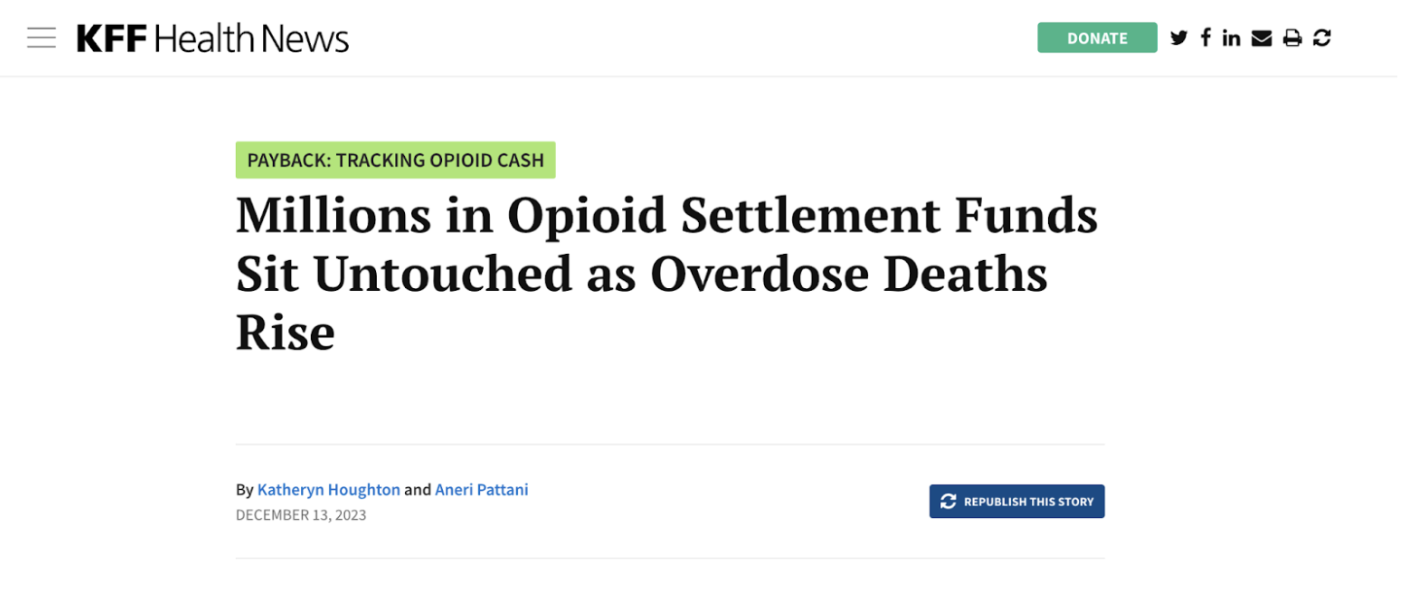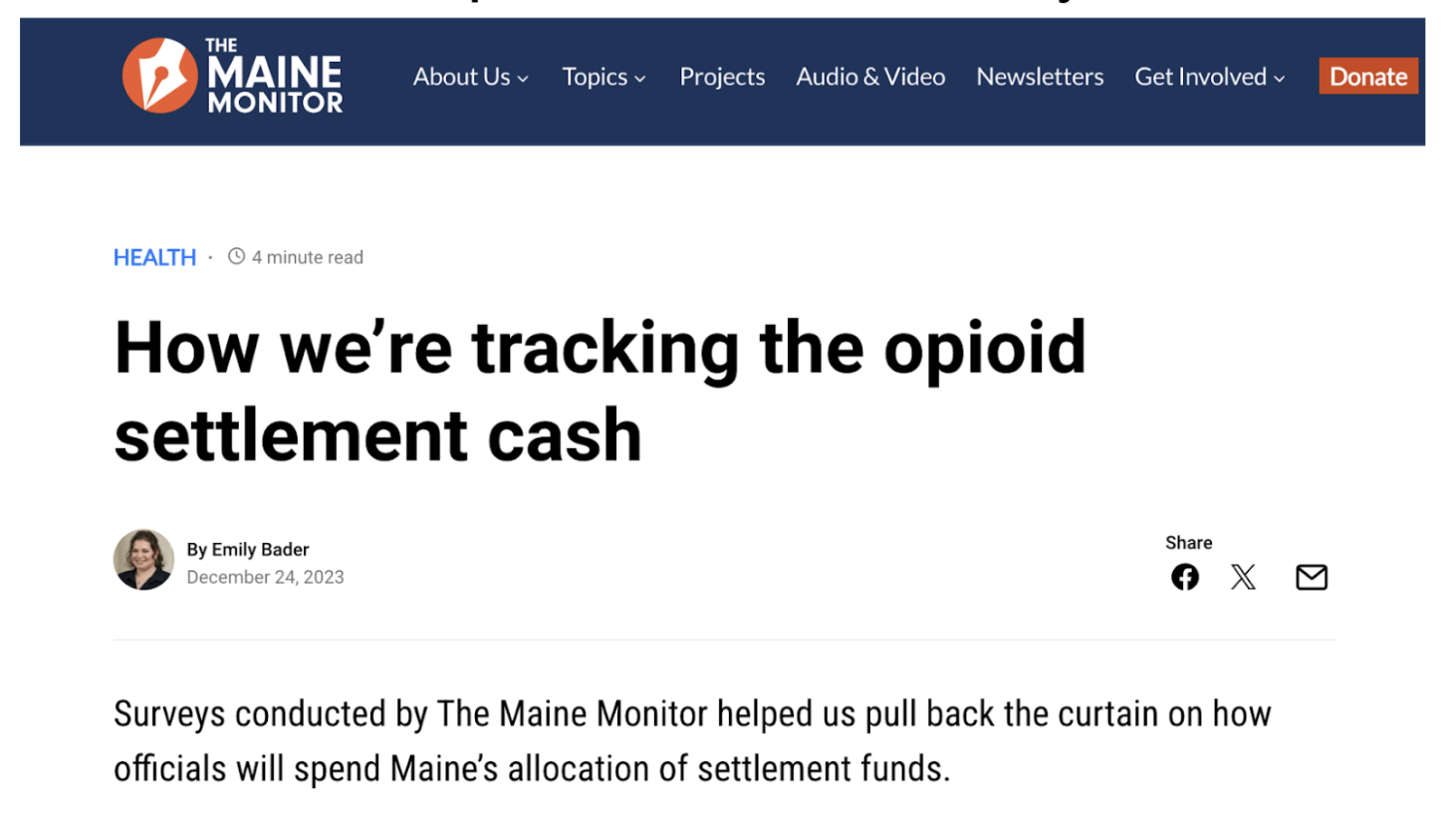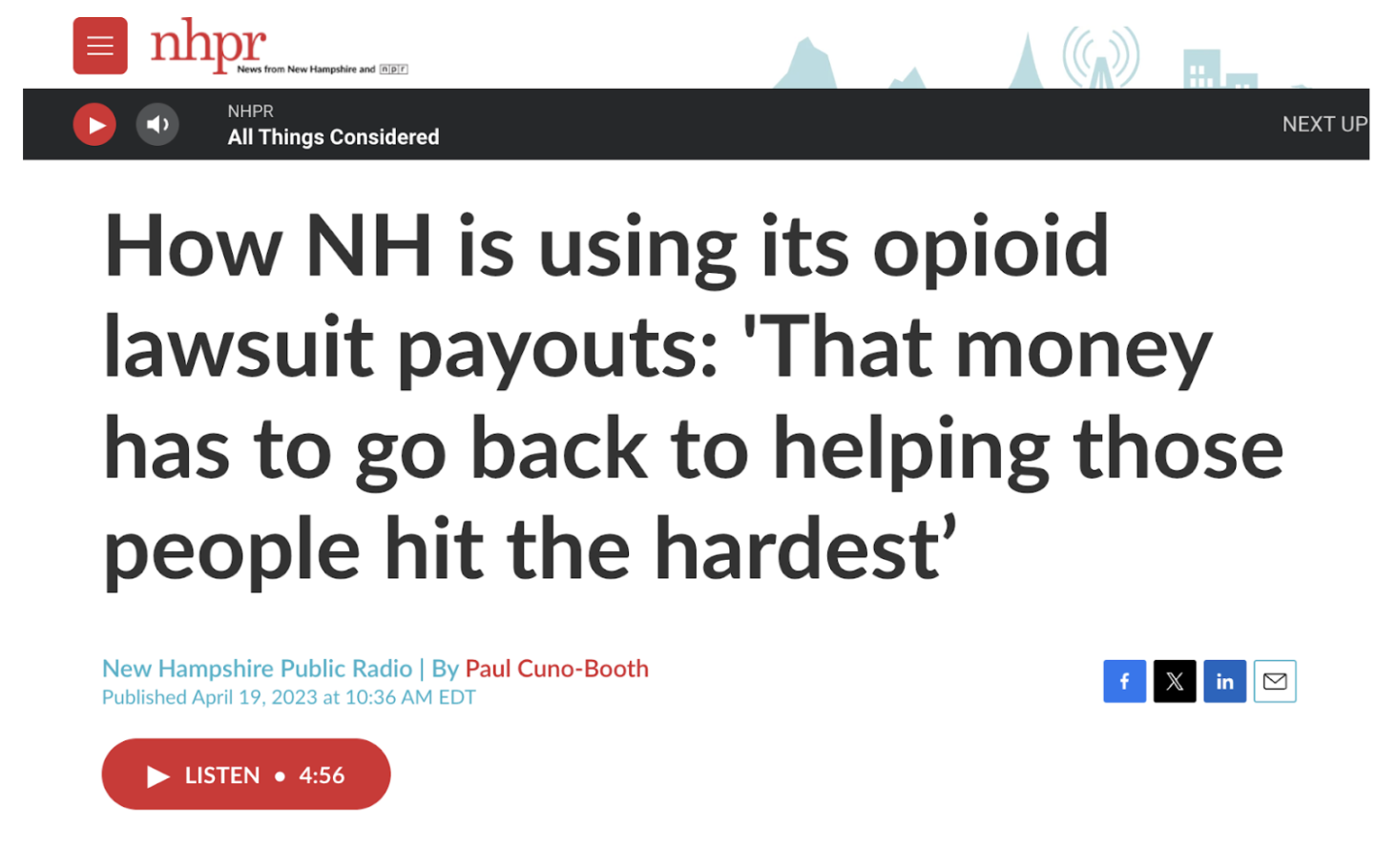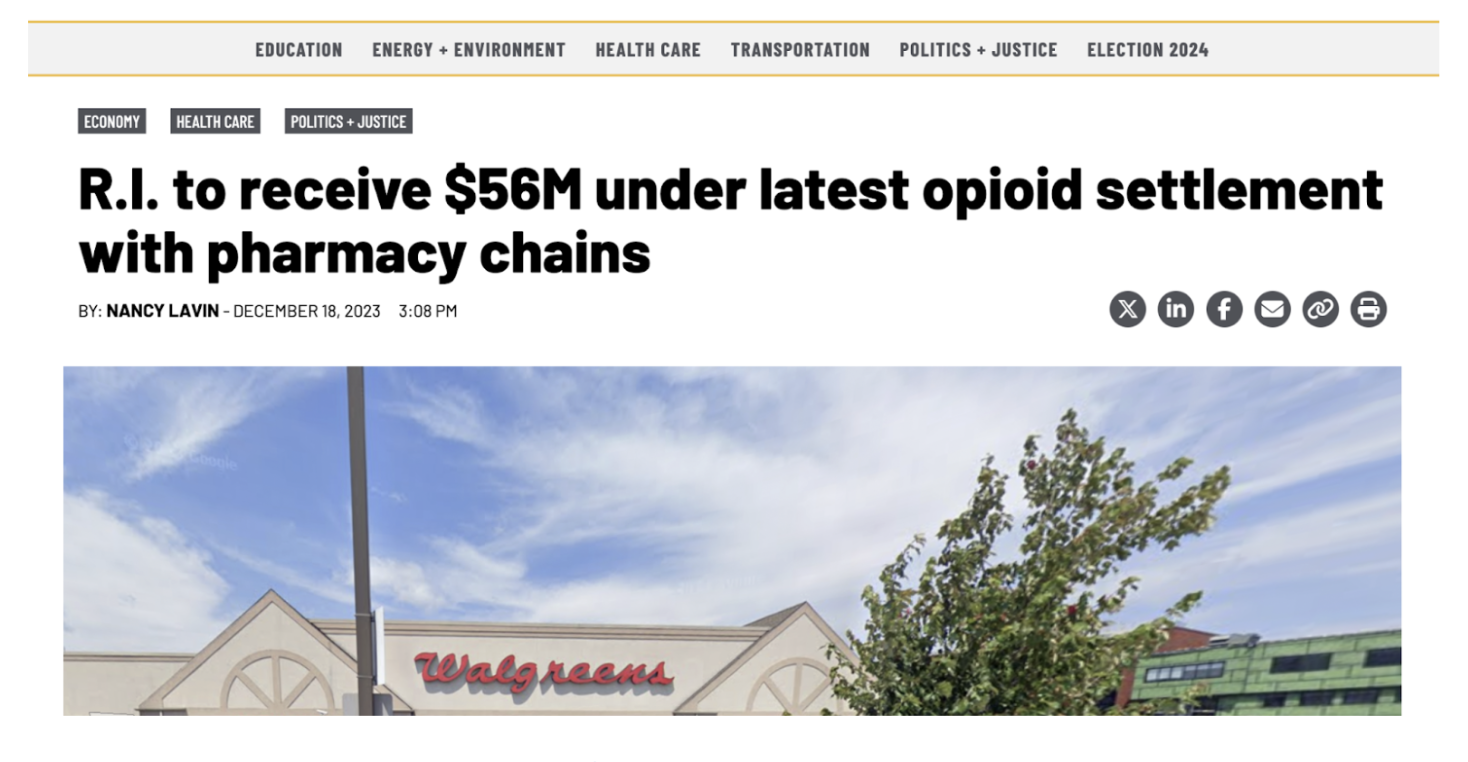Hawaii is moving very slowly with disbursement of opioid settlement funding for sober living
Hawaii is moving very slowly with the opioid settlement money the state has been promised. The state is already in possession of about $19 million of the settlement money, which will balloon to over $100 million over the course of many years. The state has yet to even set up a mechanism to administer the money and decide how it will be used. Governor Ige promised last year that roughly 85% of the money will go towards “treatment, prevention and education about the dangers of opioid addiction” but he offered no further details about what that means for Hawaiians.
This state of affairs should change soon and Hawaii will eventually begin making this funding available for use. A bill is currently in review by the state’s finance committee that aims to establish a fund and create a staff of some kind to administer the disbursement of the settlement monies.
Maine Recovery Council and local governments control Maine’s opioid settlement money
Maine will spend over $235 million in opioid settlement money over the next 20 years. The Maine Recovery Council will disburse half of that money. The remaining 50% will be divided between the Office of the Attorney General and local governments - counties, cities, and towns - for distribution with varying degrees of oversight. Specifically, the AG will receive 20% of the total, while local governments will divide up the remaining 30% of the funding.
The Maine Recovery Council approves a variety of uses of their piece of the pie, including: naloxone distribution, increasing access to evidence-based treatment modalities like MAT, prevention programs and special education programs in public schools.
Recovery residences seeking funding for special projects will likely have the best luck contacting their local governments to learn about how to be considered for funding.
Montana finally has an active grant portal for sober living home opioid settlement funding opportunities
Montana, like Hawaii, has been straggling behind other states with setting up a system to manage its opioid settlement money. Montana’s Opioid Abatement Trust will oversee 70% of the money. The remaining 30% will be divided evenly between the state and between local governments. It’s unclear how those funds will be disbursed.
Although many news organizations have faulted the Trust for moving slowly in the past, it appears that their grant portal is currently active as of March, 2024. In it’s approved uses document, the Trust specifically names recovery housing as a priority, under the heading of expanding “Warm hand-off programs and recovery services.” Recovery housing is named along with other “comprehensive wrap-around services” like transportation, job training and childcare.
New Hampshire began accepting sober living home grant proposals in summer 2022
New Hampshire is set to receive over $310 million over the course of the next 20 years from opioid settlements. At least $45 million has already arrived in the state for disbursement. 15% of those funds will go to local governments but the rest will go to the New Hampshire Opioid Abatement Advisory Commission, which includes politicians, local officials, public health advisors, addiction treatment professionals, and representatives from law enforcement and corrections. The Advisory Commission began accepting grant applications in summer of 2022, when more than 40 organizations applied for grant money. The Opioid Abatement Advisory Committee is also working with the Department of Housing on the Supportive Housing Program, which is also of interest to sober living home operators in New Hampshire.
Rhode Island’s sober living homes face an opaque process to compete for opioid settlement funding
Rhode Island is slated to receive over $190 million in opioid settlement money over the course of many years, with the last payment scheduled to arrive in 2038. So far, the state has received over $10 million in monies.
Rhode Island will disburse 20% of funds to local governments, cities and towns for use at their discretion. The funds will be distributed to these bodies according to population. These funds must be set aside to address the opioid crisis and nothing else. The remaining 80% of the money is controlled by the Opioid Settlement Advisory Committee in association with Rhode Island Health and Human Services.
It’s unclear how to formally ask that a project be considered for funding by the Advisory Committee. You can reach out to the committee at their email address with questions at OHHS.Opioidsettlement@ohhs.ri.gov.
More Updates on Opioid Settlement Money and How Sober Living Homes Can Leverage This Important Resource
Sober Living App Helps Sober Living Succeed
Sober Living App makes it easier - and more profitable - to operate sober living homes.
Our all-in-one app handles rent collection, admissions, property management, residents’ care coordination, community contacts, transportation details, calendars, staff, alumni and more - all from the convenience of your phone.
Claim your free trial today and see why more sober living homes prefer the Sober Living App.







